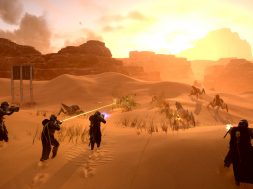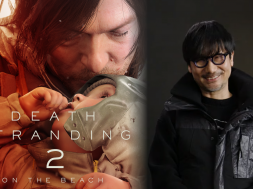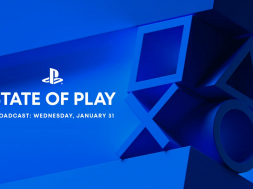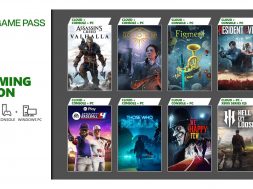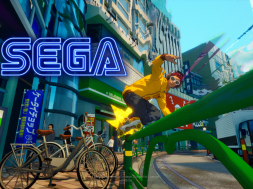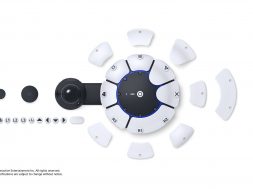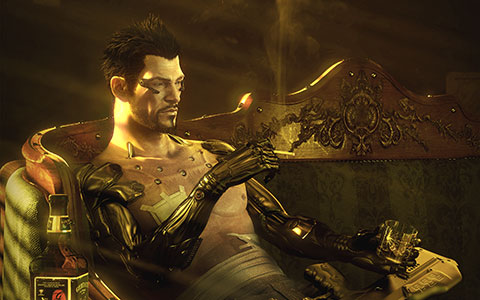
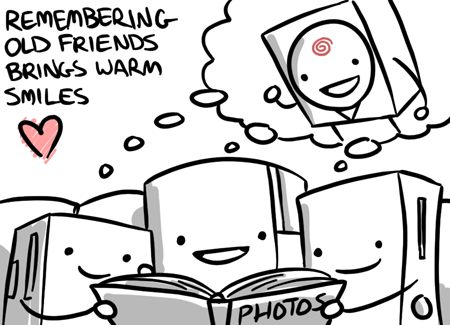
Summarising the entire 7th console generation is…rather hard, frankly. The highs were awesome and the lows hit depths the likes of which we haven’t seen since the great crash of ’83.
Games are becoming more expensive to develop as publishers mistakenly believe graphical power and spectacle are what sell games, leading to more copies needing to be shifted in order to break even, placing more stress on the developers, who more often than not get shut down despite making good games because they just couldn’t sell enough. Hell, last year we even saw THQ, one of the biggest and best publishers in the world, close its doors and auction off all its properties. Add this to the numerous attempts by publishers to crack down on piracy by grabbing the wrong end of a different stick entirely, and forcing the legitimate paying customers to jump through hoops to do something as simple as playing online, and the seventh generation has had a lot of – excuse the language – absolute bullsh*t we gamers have had to endure.
But I wouldn’t still be a gamer if the games weren’t completely worth it. For every travesty, every Aliens: Colonial Marines, there’s been a game that’s counteracted it. Games are finally coming to terms with how they can use their medium to tell stories and create narratives in new ways that films and books simply can’t begin to dream of, and ultimately, that sense of growth and maturation is what keeps me playing.
Deus Ex: Human Revolution
Anyone who knows me personally is rolling their eyes and saying “Yep, I knew it” to themselves upon seeing this one on the list. I could wax lyrical about this game for far too long (in fact, the first piece I submitted to the editor on this game was nearly 2500 words). If you read my Mandatory Gaming piece on it, you’ll already know my feelings on it, but it bears reiteration that this game creates narrative like to other. Every single aspect of the world, the dialogue, the level design and the mechanic design is fine-tuned to reinforce the cyberpunk narrative. It hits very hard to our current sociological climate, asking us questions about wealth disparity, protecting corporate interest over the interests of the people, and about the status of life, what makes us human, and how we can evolve to be better than we are.
Couple this with some amazing level design which rewards exploration and presents multiple options for completing it and some gorgeous Blade Runner-esque depictions of near-future China and Detroit and you have a game that’ll stick with you for a long time.
Mass Effect 1 and 2
This is a little bit of a cheat to put these two in the same spot but it’s the only way I’ll be able to explain my thoughts on the series properly. I love these games. They’re full of gorgeous design and a beautiful aesthetic with one of the deepest universes in gaming. The dialogue is some of the best in gaming and the mechanics evolved rather well over the course of time. However, both the first game and second game have their strengths and weaknesses. The first game’s strength was its plotline, and its villain. Saren was a magnificent bastard from the get-go, and the entire way through the game you just want to shoot his indoctrinated head off. And as for the storyline of stopping Sovereign, it was exciting, high-stakes without being too overblown and perfectly paced. Where the first game failed was in its mechanic design – as Bioware were used to developing RPGs they applied this design philosophy to Mass Effect, and as a result we ended up with a game that had horrifically sloppy shooting, awful mandatory vehicle sections that controlled like the Warthog from Halo if it was an overexcited ADHD-afflicted child on caffeine and a front-loaded questline that leads to running about on the Citadel for hours doing petty errands before the game proper begins. The second game excelled in its mechanics. Shooting was tightened considerably, the inventory system was streamlined massively, and overall it ended up feeling like a perfect marriage of shooter and RPG.
The second game’s failing, to me, was the plotline. Mass Effect 2 was a very character-driven story. You meet new people, you learn more about them by doing their loyalty missions, which reveal a huge part of who they are as a person. Unfortunately, while this made for more memorable characters, it lead to a weaker plotline as a whole, as it felt more of a soap opera than the first game’s space opera at times. Sure, there was the threat of the Collectors but they never had an identifiable face like Saren was for Mass Effect 1 (Harbinger doesn’t count, he had the personality of a kitchen cloth). The game could feel like “Sure, let’s go smooth things over with your son, then we’ll go sort out Samara’s daughter and then I guess we’ll save the galaxy if we have to”. The end result was a game where the stakes never felt as high as the first game, where it was hard to get a sense of the danger the galaxy was facing because it didn’t spend enough time on the threat. Mechanically, it was a better game but Mass Effect 1 trumps it in story, and that’s why I have to lump them here together as one game.
Fallout 3
You may be sensing a recurring theme of games that tell their narratives through the world and aesthetic design, and as it turns out I’m a sucker for lore in games. That was one of the strengths of Fallout 3 to me, managing to convey the desolation of its world through the creature, environment and weapon design. It based everything on 50’s and 60’s Americana, and wandering through those kinds of white-walled suburban American homes after the nukes hit was a visually arresting experience. It also managed to be absolutely horrifying at times – going into that Nuka-Cola factory at a low level, wandering around alone at night and hearing some awful irradiated monstrosity nearby but you just can’t see where it is, that bloody Vault with the hallucinogenic gas, that vault where they’re controlling the inhabitants through subliminal messages and white noise embedded in music – there was some pretty damned ghastly stuff in there.
It managed to convey so many emotions, from the terror of having to fight a super mutant early in the game with nothing more than a pistol and an SMG, to the sheer power fantasy of tearing through waves of mooks late-game with seventeen different heavy weapons at your disposal, to the calm serenity of simply walking through the wasteland listening to Galaxy News Radio’s finest offerings, to the curiosity of spotting something in the distance and thinking “Oooh, that looks interesting, let’s go check it out”. The Capital Wasteland was gorgeous in its desolation, with some beautiful post-apocalyptic vistas and inventive locales such as Rivet City and the trench system outside the Washington Monument. Throw in some great DLC such as the post-game content of Broken Steel, the inventive simulation of Operation Anchorage or the eerie horror of Point Lookout (and let’s not talk about Mothership Zeta, it was a bit shit, let’s be honest). I’ve sunk far too many hours into this experience to not include it here, and you owe yourself to check out Fallout 3.
League of Legends
PC gaming doesn’t run on generations like consoles, instead evolving more naturally over the course of time than at fixed points in time where everything got magically better in one go. But League was launched during the seventh console generation and it is a game, so I’m going to include it on the list. It’s a marvellous game, full of excellent design philosophy (if you haven’t seen it, look up Extra Credits’ video on “Counterplay” for one of the many examples) and a great marriage of lore, art design and gameplay design in one go. It’s incredibly difficult to get into, true.
It’s not a newbie-friendly game and neither are the community. But once it clicks, you’re hooked. You’ll scream at the PC because of awful teammates or because you’ve been counter-picked and you’ve had an awful game, but in the end you’ll be right back on it the next day (or the next twenty minutes). It’s worth playing for those moments where you feel legendary: stealing a Baron from the other side of the map with Ezreal’s ultimate; getting a pentakill; turning a hopeless situation into a win; shutting down that arrogant bastard who’s been flaming you the entire game – those are the moments you play for. It’s also one of the few games where the free-to-play aspect is completely fair. In my entire time of playing I’ve spent maybe…twenty quid, twenty-five tops, and for 400 hours’ worth of gameplay that’s good value for money right there. It’s not for everyone, not at all. And I know some people will inevitably go “DOTA 2 IS BETTER” but whatever. Dota’s a good game, it makes different design choices and ultimately offers a different experience to League. It just so happens that League offers the experience that I want, and for the simple reason that I only started playing in February of this year and I’ve already racked up over four-hundred hours of playtime, it has to be on the list (plus, 32 million active players can’t be wrong, right?).
Halo 3
This last spot was probably the hardest one for me to decide on, since there are so many other games that could go here which I absolutely adore (Half-Life 2, Portal, Team Fortress 2, Bioshock and Mirror’s Edge all earn a spiritual place here), but in the end I had to go with the game that had the most influence on me, and that was Halo 3. Before this I hadn’t played many shooters outside of local multiplayer sessions of Unreal Tournament and TimeSplitters 2 with friends (two games I also still adore), so Halo 3 was a bit of a formative experience for me in the genre. It had something that got lost somewhere in the sequels, but I can’t place my finger on exactly what.
It was bright, colourful, the weapons and vehicles were designed well, the enemies were varied and interesting, and you had multiple ways to approach each situation. The campaign had some excellent levels in it, from taking down two Scarabs in a Hornet VTOL on The Citadel, to wandering through the vast halls of Forerunner architecture on The Ark to the final Warthog race to escape the Halo as it explodes around you. The story relied on its predecessors, which isn’t really fair to complain about because of course the final game in a trilogy will do that, but it also worked as a standalone narrative itself. It may have glossed over some important details but it was all still there.
The multiplayer was a fantastic experience too, a simple, straightforward shooter which wasn’t like anything else at the time, before they introduced new mechanics like the armour abilities and loadouts of the sequels. Some of the maps were fantastically-designed, leaving good memories of storming the wall on High Ground or managing to outsmart the guy camping the grav-lift in Construct.
I can see this being a contentious pick for some, but overall the series has had some sort of influence in almost every piece of fiction I’ve written since then, and I still dive back into the campaign mode now and again just to relive some of the awesome missions (we most emphatically do not bring up “Cortana” here). It had some sort of magic, a soul that became less pronounced with each iteration after that, but the game was my first experience with proper shooters, and something about it will always remain in my mind and bring a smile to my face.

